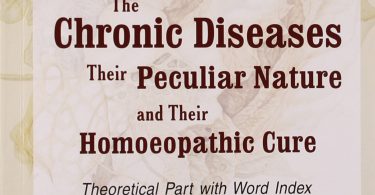The concept of genetics of individualization can help in finding out the scientific basis of individualization. In homoeopathy, no two individuals, having the same complaint, are prescribed the same medicine. The study of genetics helps us in finding why two individuals require different medicine. Each individual differs in its genotype and phenotype. Genotype is a gene complement or genetic constitution of an individual with regard to one or more characters irrespective of whether the genes are expressed or not. Phenotype is observable or measurable structural or functional characteristic of an individual with regard to one or more characters which is a result of genetic products brought to expression in a given environment.
The human genome project began in 1990. The genomic techniques can provide possible clues to gene functions. The human genome sequencing not only makes a healthier living, but also provides the prospects to knowledge about desires, drugs, genetically modified diets and finally our genetic identity.
Although we all share genome sequences that are 99.9% identical, the remaining 0.1% is crucially responsible for the genetic diversity between individuals. It is the Single Nucleotide Polymorphism (SNP) and group of SNP’s called haplotypes, which determine the individuality of a person. A haplotypes is defined as the constitution of the person with respect to one member of alleles of genes. Alleles is employed for any two forms of a gene present on the same locus in the two homologous chromosomes viz. T-T,t-t,T-t.
Small differences in genes are known as SNPs. Researchers analyzed 313 genes in 82 individuals with different ancestral backgrounds. They found that the strength of the genetic association of pairs of SNPs (linkage disequilibrium), which is important in the identification of disease related genes could not be readily predicted from examining individual genes or genomic regions. It appears that haplotypes provide more information as genetic markers in a gene than do the SNPs.
New research indicates that SNPs actually travel from one generation to the next in strands called haplotypes. Creating a haplotypes map would immensely simplify the process of analyzing an individual’s risk of disease and response to certain drugs. Therefore, we need to study the haplotypes in order to determine the individuality of a person. SNPs can help determine the likelihood that someone will develop a particular illness. The SNPs provide focused targets for the development of effective new therapies.
Although now the modern science is coming up with ideas to individualise using SNPs yet it was 200 years ago that Dr Hahnemann had talked about the individualization in the Organon of Medicine.
Dr Hahnemann wrote in the preface of his book entitled as The Chronic Diseases, “we have no means of reaching with our senses or of gaining essential knowledge, as to the process of life in the interior of man and it is only at times granted us to draw speculative conclusions from what is happening, as to the manner in which it may have occurred or taken place; but we are unable to furnish conclusive proofs of our explanations, from the changes which are observed……………………………because they were not satisfied with my efforts at explaining the mode of procedure, which takes place in the interior of man during a homoeopathic cure.
During the times of Hahnemann, he himself could not prove the scientific basis of individualization. But today with advancement in science, we can easily bring forward the evidence in favour of homoeopathic individualization thereby bridging the gap, which lies between the evidence based medicine and evidence based homoeopathy.





